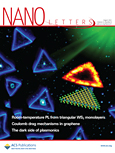 A group of researchers at the Einstein College of Medicine in the Bronx, New York has retracted two papers for image manipulation.
A group of researchers at the Einstein College of Medicine in the Bronx, New York has retracted two papers for image manipulation.
The retraction notices for “PM02734 (Elisidepsin) Induces Caspase-Independent Cell Death Associated with Features of Autophagy, Inhibition of the Akt/mTOR Signaling Pathway, and Activation of Death-Associated Protein Kinase” and “The Phosphatase Inhibitor Menadione (Vitamin K3) Protects Cells from EGFR Inhibition by Erlotinib and Cetuximab” say the same thing: Continue reading Papers on potential cancer drugs retracted for image manipulation






